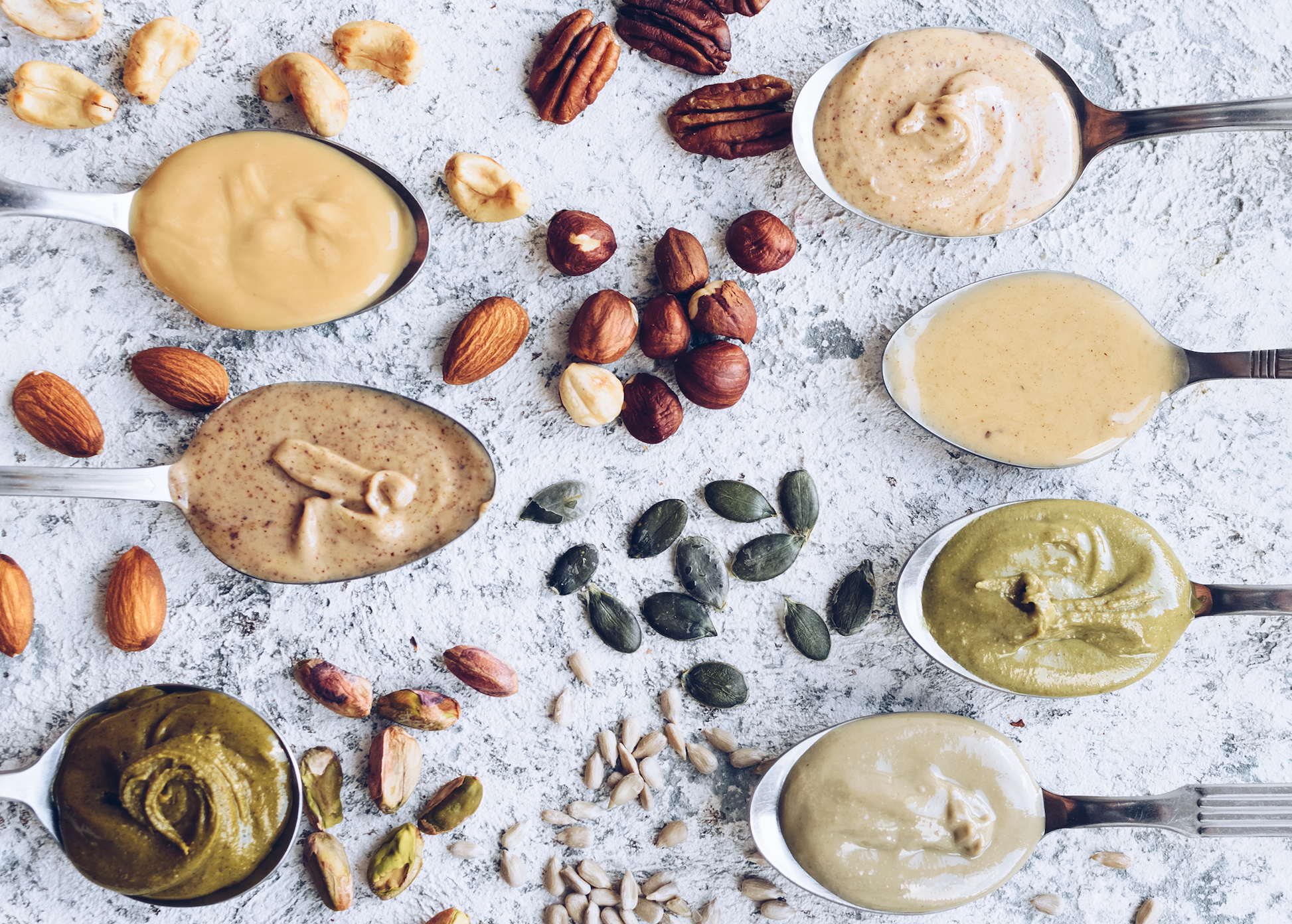There are smoke and mirrors when it comes to so-called healthy food, including nut butters.
Nut butter is a great low carb source of protein, fats, fibre and various important vitamins and minerals. But not all nut butters are healthy.
Many commercial nut spreads on supermarkets shelves are full of harmful additives outweighing any of the health benefits.
It’s worth reading nutrition labels when buying a nut butter (or any other bottled and packaged product). Avoid those containing palm oil, hydrogenated or partially hydrogenated oil (aka trans fats), excessive sodium (anything over 1000mg of sodium per serving), added sugar, milk powder, thickeners and emulsifiers or any artificial sweeteners and additives and pretty much any ingredients expressed in numbers rather than words.
Nut butters vary in taste, consistency and nutritional values and from the dietary perspective it’s best to have a mix of few different kinds of nuts within the one jar to cover a wide range of beneficial nutrients.
You can make butter from any nuts and because there are so many, we have picked our top three favourites. If you mix them together, you get the most nutritious (and delicious) low carb condiment.
CASHEW BUTTER
Cashews are high in nutrients important for energy production, brain health, immunity, and bone health such as copper, magnesium and manganese.
In comparison to the other nuts, cashews are the highest in carbohydrates and zinc, one of the most important minerals for your skin and immune system. It’s also the highest in iron and you’ll get about 10% of your daily iron in two tablespoons.
Being the creamiest of them all, cashew butter is the best dairy replacement for dessert making and the most decadent raw cheesecakes are made with it. But it’s also great for savoury recipes. Think a healthy Satay sauce or an Asian-style salad dressing.
ALMOND BUTTER
Almond butter is perceived as one of the healthiest nut butters. It’s the highest in fibre and calcium out of all nuts. One tablespoon of almond butter contains around 55mg of calcium. It also contains a good dose of vitamin E, a potent antioxidant that’s important for your immune function and regulation of gene expression.
I love dipping apple pieces in it for an afternoon snack or spreading it on my homemade pumpkin or banana bread. It’s as versatile as peanut butter and an epic alternative for those with peanut allergies.
PEANUT BUTTER
Although peanuts are technically legumes, they taste very nutty and who doesn’t love a good PB! Peanut butter is an excellent source of protein, folate and niacin (vitamin B3), which is used by your body to turn food into energy.
Niacin helps to keep your nervous system, digestive system and skin healthy. Furthermore, niacin is thought to play a big role in antiaging via its metabolically active form, NAD.
Peanut butter is inexpensive and versatile. You can use it for cooking, baking, smoothie-making or as a dip with fruits and veggies. Just watch the sugar and sodium lveels.
Written by: Veronika Larisova is a Nutritionist, Exercise Physiologist, Fitgenes practitioner and Educator who has worked with a wide range of clientele ranging from Olympic athletes to weekend warriors. She is also the Co-Founder of Beauty Food.

